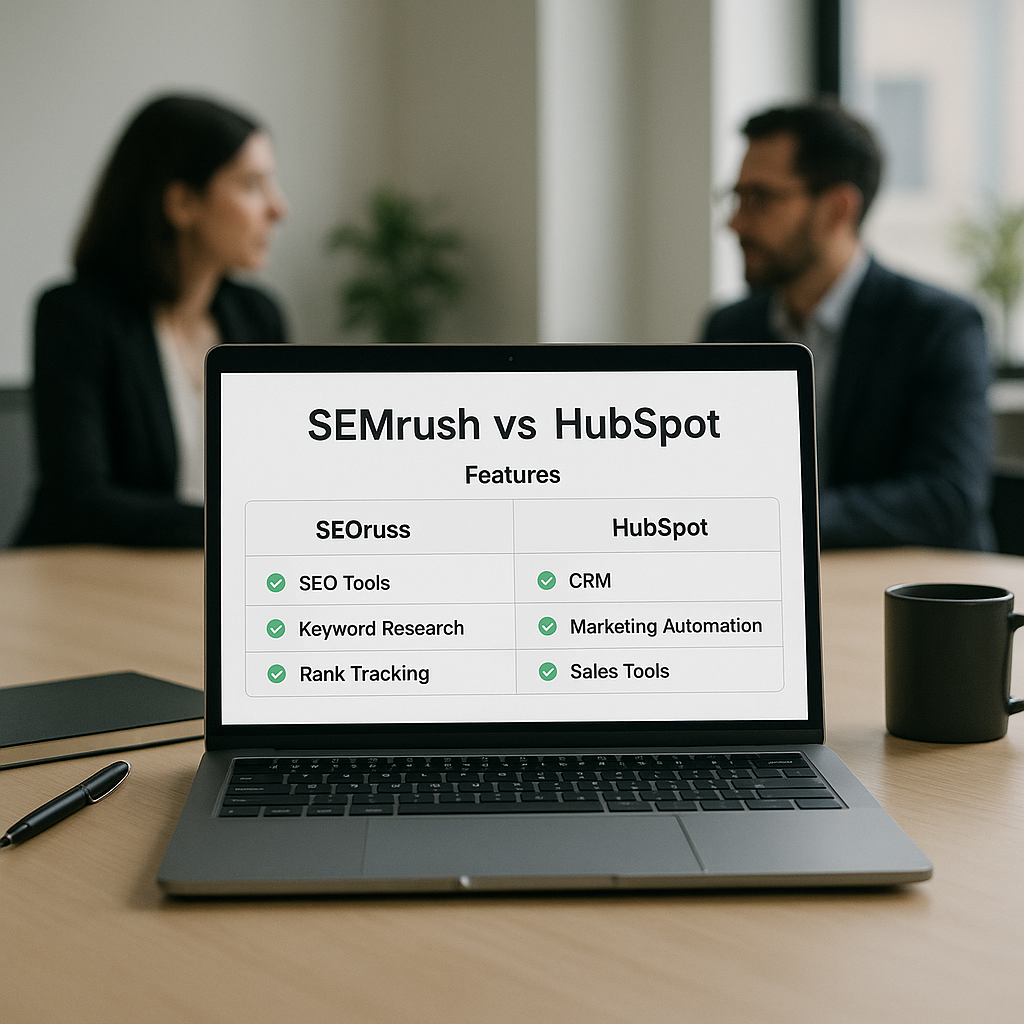Choosing the Right Marketing Tool for Your Business in 2025
As we navigate through 2025, the digital marketing landscape continues to evolve rapidly. With myriad tools available to help you manage your marketing endeavors, selecting the right solution for your business can appear daunting. Among the popular platforms you’ll encounter are Semrush and HubSpot, two giants in the digital marketing realm. Both platforms provide extensive functionalities tailored to various marketing needs, yet they serve different purposes and cater to diverse audiences.
At Best Choice, we understand that the right tools can dramatically impact your marketing efforts, workflows, and ultimately, your bottom line. In this blog post, I will delve into the distinctions between Semrush and HubSpot, their pricing structures, and how we can help integrate them into your existing systems. Additionally, I will discuss open-source alternatives that can provide similar functionalities at a fraction of the cost.
Understanding Semrush
Semrush is a powerhouse when it comes to SEO, PPC, content marketing, and competitive analysis. If you’re looking to gain insights into your competitors’ strategies or improve your website’s visibility, Semrush offers an array of tools that can help achieve these objectives.
- Keyword Research: Semrush allows you to explore a vast database of keywords to target, helping you optimize your content for better search engine rankings.
- Backlink Analysis: You can analyze your backlink profile alongside that of your competitors, gaining insights into potential link-building opportunities.
- Site Audits: The platform helps identify technical SEO issues on your website that may be hindering performance.
The pricing plans for Semrush span from $139.95/month for the Pro Plan, which is suitable for freelancers and startups, to $499.95/month for the Business Plan, aimed at large enterprises with advanced needs. This tiered approach allows businesses of all sizes to access essential marketing tools.
Case Study Example: Online Store
Imagine owning an online store that sells unique artisan products. By utilizing Semrush’s tools, you can perform keyword research to discover what potential customers are searching for. Perhaps they are looking for “handmade pottery.” With this insight, you can optimize your product descriptions and blog posts, driving more organic traffic to your site. Over time, this leads to increased sales and a stronger brand presence online.
Discovering HubSpot
On the other hand, we have HubSpot, an all-in-one platform catering to inbound marketing, sales, and customer service. Its array of tools includes content management systems, email marketing capabilities, social media management, and customer relationship management (CRM) functionalities.
- Comprehensive CRM: HubSpot’s integrated CRM allows you to track interactions with your leads and customers, streamlining your sales process.
- Marketing Automation: Schedule email campaigns, segment your audience, and automate nurture processes to keep your leads engaged.
- Analytics: Gain insights into the performance of your marketing efforts with detailed reporting.
HubSpot offers various pricing tiers, starting from free tools to the more sophisticated Marketing Hub plans that could reach up to $3,600/month. This allows flexibility depending on your business’s needs and budget.
Case Study Example: Service-Based Business
Consider a clinic that provides wellness services. With HubSpot, you can manage your patient relationships through tailored email campaigns promoting new services. The effective use of CRM can help track patient appointments, follow-ups, and feedback, ensuring their needs are met. This ultimately enhances patient satisfaction and encourages repeat visits.
Open-Source Alternatives to Consider
While Semrush and HubSpot provide robust solutions, there are increasingly popular open-source alternatives that can deliver similar functionalities at a lower cost. Here are a few notable options:
– SuiteCRM: A customizable open-source CRM that allows complete control over your sales and marketing processes. It’s a great alternative for companies that want a tailor-made solution.
– SE Ranking: Budget-friendly SEO software that covers essentials like keyword tracking and site audits, perfect for small businesses looking to enhance their online presence without breaking the bank.
– Ubersuggest: An accessible SEO tool, ideal for freelancers and newcomers that offers keyword research and backlink analysis options.
At Best Choice, we can help you integrate these open-source solutions into your existing workflows or recommend the best approaches to utilizing tools like Semrush and HubSpot for your specific needs.
Maximizing Your Investment
The key to maximizing your investment in any of these tools lies in understanding your unique business challenges. Whether it’s automating tedious marketing tasks, improving customer engagement, or optimizing your website for better visibility, our team can help.
To get started:
- Assess your current marketing needs and objectives.
- Consider integrating a robust platform that serves multiple functions.
- Explore open-source alternatives if you’re on a tighter budget.
Conclusion
In 2025, choosing between Semrush and HubSpot ultimately hinges on your specific business needs. Each tool has distinct advantages; Semrush excels in SEO and competitive analysis while HubSpot provides comprehensive marketing and CRM capabilities. Open-source solutions may also provide cost-effective alternatives if you’re looking for flexibility and customization.
At Best Choice, we are here to help you navigate these options and find the perfect solutions tailored for your business. If you have questions or need assistance with setting up your marketing tools, please don’t hesitate to reach out. Together, we can enhance your marketing efforts and drive your business forward!





